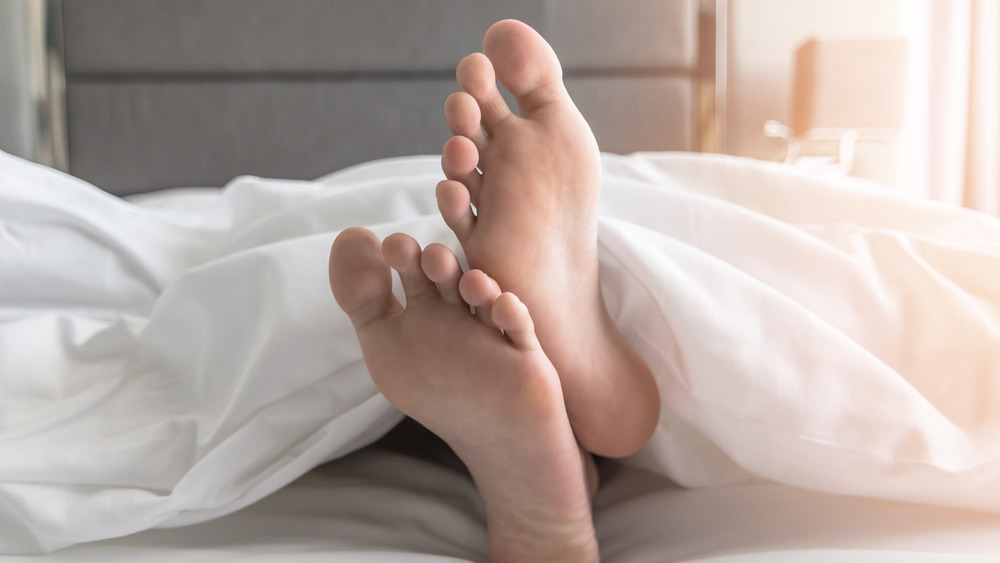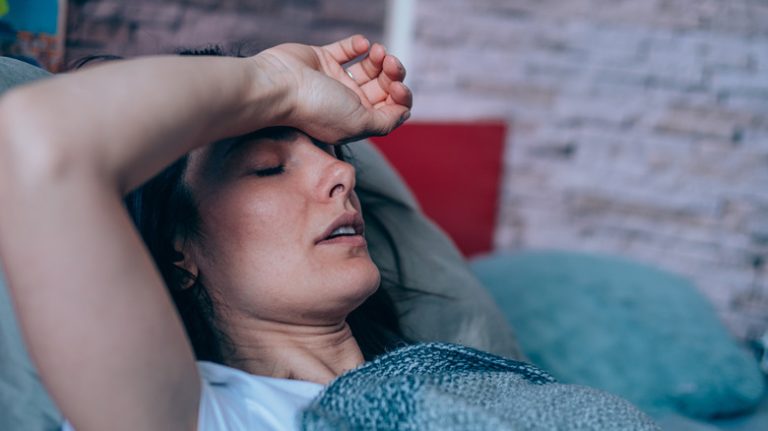Perhaps you have sat in an awkward position for a long time and then tried to spring up and start moving, only to dramatically collapse as your legs swarm with pins and needles. Or maybe you have woken up to the frightening realization that you can’t feel your arm because you had it nestled under your pillow and now it’s numb. What you’re experiencing is the completely normal moment of having a body part fall asleep. It can be annoying, a little scary, and potentially even painful if the pins and needles are intense enough. But it’s not a health risk — it’s just a human oddity.
The reason that body parts fall asleep isn’t lack of blood circulation, as you might have expected, per Verywell Health. It’s actually a nerve reaction caused by prolonged pressure cutting off the nerve communication between that body part and your brain. The different reactions that you may have, from numbness to tingling, vary because the nerves can react differently to different stimuli, so as you start to move and your circulation to the area increases, the nerves may go haywire and you’ll feel the shift from numb to itchy or tingling (via Mental Floss).
Should you worry about a body part being asleep?

Medically speaking, the pins and needles feeling that you get as your arm or leg starts to wake up is called paresthesia, and while it’s uncomfortable, it’s nothing to worry about in most cases. The feeling of numbness, pins and needles, itching, or difficulty controlling a limb won’t last long in most cases, but can take up to half an hour to fade. Typically, the best treatment is simply moving around and allowing that limb to get out of the restricted position that it’s been trapped in, which will allow the nerves to resume normal communications between body and brain.
While there can be some more serious underlying conditions that make it happen more often, like diabetes, vitamin B deficiency, or even a stroke, typically a body part being asleep is just a reaction to being in a restricted position. But if it is happening frequently and not just when you’ve been sleeping or sitting awkwardly, check in with a doctor (via Medical News Today).



